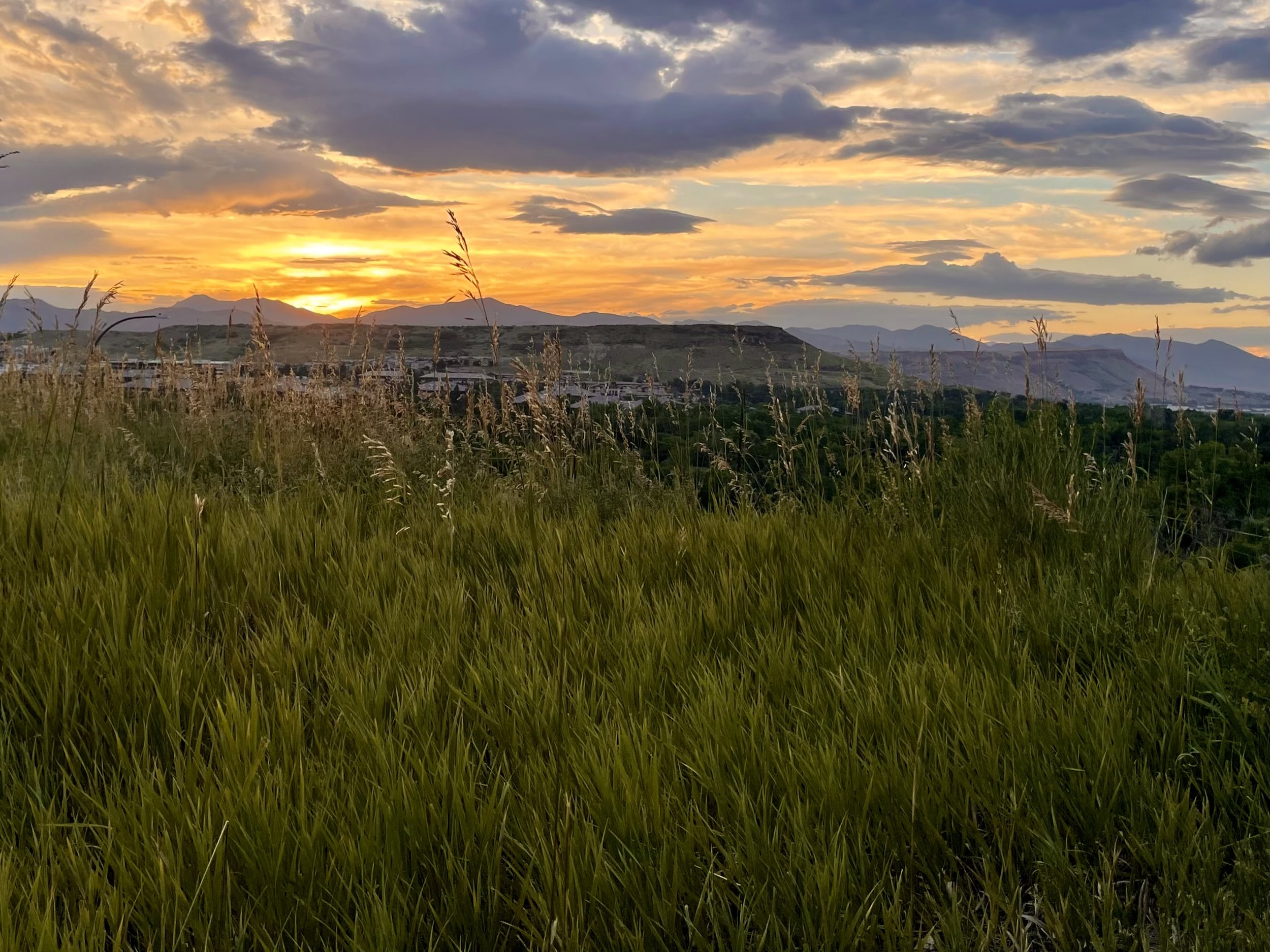Man-made Stress
I sit here nibbling on a pizza atop a hill while watching a beautiful sunset behind the Rocky Mountains and nearby foothills town.
A scenic sunset while eating pizza 🍕
I’m getting over a cold, but it’s a nice day, and I want to enjoy it as best as I can while keeping my germs to myself. 🦠
This beautiful view makes me think about the contrast between Mother Nature and the human condition. Nature, with its simplicity, beauty, and seemingly effortless existence (animals get to live on earth rent-free), stands in stark juxtaposition to the complexities, conflicts, and challenges that plague human society.
Humanity has carved out a unique space for itself in this world, constructing communities and inventing conveniences that have led to remarkable advancements in knowledge, science, art, and technology. Our collective strength in numbers has propelled us forward unlike any other species on earth.
But there's a tipping point where the very conveniences we've created, designed to alleviate stress and enrich our lives, become burdensome. The scales tilt, and we find ourselves ensnared in the trappings of our own making, resulting in a society that's often sick, stressed, and fatigued.
Stress, a silent assailant, can erode years from even the most privileged among us — many extremely successful entrepreneurs and top business executives die young. Could that be from excessive stress? Conversely, the homeless population, burdened by the harsh realities of homelessness and the lack of the conveniences society affords, also face a battle against stress, and subsequent shorter lives.
I think this double-stress potential presents itself as a complex optimization problem. Our modern conveniences can reduce stress and enhance our quality of life — the ease of a quick trip to the grocery store is a testament to the human mastery of convenience. However, this convenience isn't free; it's paid for with money, which, in turn, is often earned through stress; a man-made stress. Financial strain adds another layer of pressure to our existence.
When do money and stress overpower the very conveniences they're meant to support? How do we strike a balance between living comfortably and avoiding additional stress that may be unnecessary? Can we find a way to minimize both natural and man-made stress? This dilemma spills into broader inquiries about the cost of living, chosen career path, and one’s definition of success.
These elements, I've come to realize, are akin to "stress dials" in our world of engineered comforts, each one impacting the level of stress we experience. However, it seems that turning the dials too far in either direction (e.g. achievement vs. forfeit) may cause excessive stress, and that there may be a balance that can optimize our human experience and life.
It's interesting how society has an expectation to continuously climb the career ladder. Is this societal pressure a result of the very convenience-driven world we've constructed? Does striving for more money actually equate to less overall stress? Conversely, is there wisdom in pursuing a humble path that preserves mental and physical well-being while sacrificing the pursuit of higher salaries? How much stress and money is needed to live with the least amount of overall stress? Does this vary across different countries and cultures? How much unnecessary additional stress is actually from “lifestyle creep?” What amount of stress defines my own definition of success, and should I try to adjust it?
As I contemplate these questions (my pizza is nearly gone by now…And I realize I’m thinking from a perspective of a lucky and privileged person…) I'm left wondering what’s the best way to enjoy the fruits of our human conveniences while safeguarding our peace of mind. Or perhaps I’m actually just making up excuses for not feeling very successful and confident about my career path in a STEM field.
In a society that sometimes places excessive value on advancement and achievements, it's essential to evaluate what truly aligns with our well-being and personal fulfillment.

